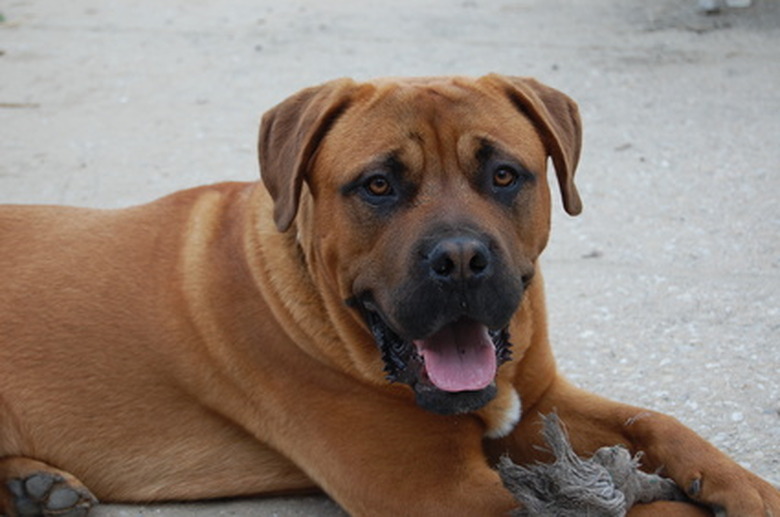Hookworm Yard Treatment
Hookworm parasites pose a threat to not only dogs but also cats and humans. The parasite is transmitted in an infected animal's fecal matter. Living within the host's intestinal tract, the parasite attaches to the intestinal wall and sucks the blood of the host. Due to an anticoagulant within the mouth of the parasite, the host can suffer severe blood loss. Several species also bite the tissue of the intestinal tract off to feed, which results in widespread damage.
Transmission
Each time a host animal defecates the fecal mater contains eggs. The eggs hatch once outside the body, and the larvae traverse into the soil where they become infective to animals and humans, according to the Centers for Disease Control and Prevention. Transmission of the parasite occurs when an animal or human comes into contact with infected soil. The hookworm larvae can enter the body through the skin of the feet or other areas of the body. People and animals can also inadvertently ingest the larvae in food and water that has been contaminated from dirty hands. Children are especially at risk for hookworm infestation.
- Hookworm parasites pose a threat to not only dogs but also cats and humans.
- Due to an anticoagulant within the mouth of the parasite, the host can suffer severe blood loss.
Limit Grass and Garden Plants
Adequate landscape control to reduce and control hookworm infestations begins with the removal of all fecal matter on a daily basis. Avoid allowing animals to defecate on or near grass and foliage. Hookworm larvae cannot tolerate direct sunlight so they hide in the blades of grass and under the foliage of garden plants. Allow the dog to only defecate in areas that receive at least 2 hours of sunlight per day so the hookworm larvae are killed from over exposure to sunlight, according to the University of Florida.
Concrete and Gravel
The best method of control is to place dogs in an area of the yard with a concrete or gravel surface to use for their daily eliminations. The surfaces will be easier to clean and they will help prevent the larvae from reaching the soil where it can survive. Once the larvae emerges from the egg they can survive for 4 hours under ideal weather conditions as they make their way to soil to lay in wait for a host. Keeping pets away from soil, grass or ornamental will help control the larvae in the yard.
- Adequate landscape control to reduce and control hookworm infestations begins with the removal of all fecal matter on a daily basis.
- Keeping pets away from soil, grass or ornamental will help control the larvae in the yard.
Treatment
Unfortunately, there is no solution to effectively control and eliminate hookworm larvae from turf grass or areas of the landscape with ornamental without damage. Areas with concrete, straight soil and gravel are treatable using either brine salt or borac acid.
Maintenance
Control hookworm infestations in yards by taking pets to the veterinarian for a physical. The veterinarian will determine if the pet suffers from hookworm infestation. If a diagnosis is made, then the dog will be treated to eliminate the infestation using pharmaceutical medicines. The homeowner will also need to be diligent about removing all infected fecal matter and cleaning the area to destroy larvae. Keeping pets away from dangerous areas of infestations also helps to limit their risk of contracting the hookworm parasite.
- Unfortunately, there is no solution to effectively control and eliminate hookworm larvae from turf grass or areas of the landscape with ornamental without damage.
- If a diagnosis is made, then the dog will be treated to eliminate the infestation using pharmaceutical medicines.
